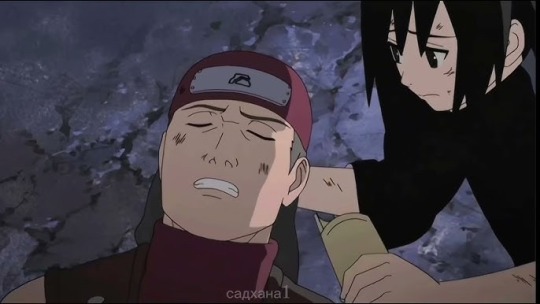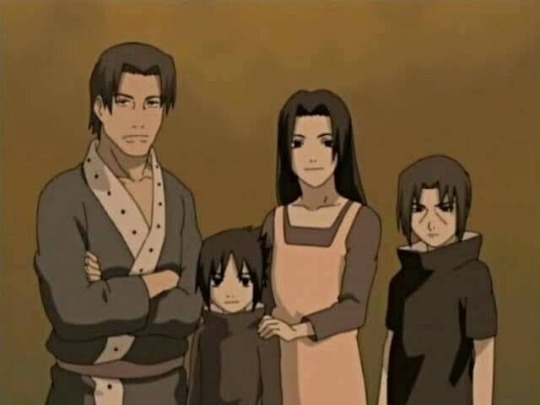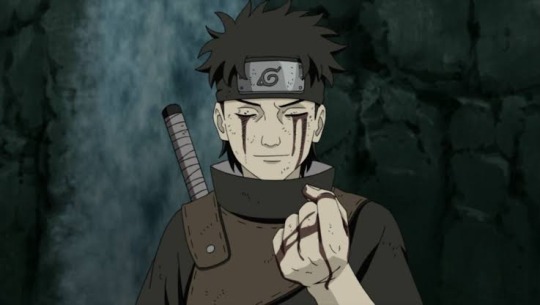#gengtsu
Explore tagged Tumblr posts
Text
Itachi Uchiha personality - a short analysis
Hey everyone! This is my first post here. I’ve just started watching Naruto in order, and of course, I couldn’t help but dig into the backstories and personalities of the characters—especially Itachi (lol).
I wanted to share my thoughts on what might be going on with his mental health, how I interpret his character, and, most importantly, hear what you think about this incredibly complicated guy. Let’s chat!
“As the one who holds the tangled strings of relationships that connect the past and future, when he moves, the wheels of destiny turn.” — Uchiha Itachi, Databook Introduction
Clinical Depression
From the very beginning, Itachi’s PTSD felt evident to me. The more I read about his personality and way of thinking, the more it seemed like a storm that was bound to break, independent of the Uchiha massacre incident
Key Signs:
Grew up facing conflicting situations from a young age

Experienced trauma related to war

Dealt with oppressive family dynamics and societal expectations

Witnessed suicide firsthand

Naturally philosophical, sensitive, and introverted personality

Tendency toward nihilism and existentialism

Suppressed emotions and avoided expressing feelings openly

Psychotic Depression
"Psychotic depression is characterized by mood disturbances accompanied by delusions, hallucinations, or both. Symptoms include sadness, hopelessness, guilt, and irritability."
"Patients may experience delusions (e.g., beliefs about having committed unpardonable sins, being persecuted, or harboring incurable disorders) and/or hallucinations, often auditory (e.g., hearing accusatory or condemning voices)."
It seems possible that Itachi’s genjutsu ability could be tied to this—perhaps as a coping mechanism to deal with the harshness of reality. While it is an invaluable tool in battle, his genjutsu also reflects his deeper philosophy. I have little doubt that this skill not only served him strategically but also symbolized his struggles with the elusive nature of truth and reality.
As [Zapenstap] analyzed:
"Itachi is an illusionist. As a genjutsu specialist, his work involves changing the perception of others. A simple genjutsu causes people to see a mirage, which renders their actions ineffective because they are “trapped” in their own minds and doing nothing in reality. However, as his skills improved, Itachi probably began to realize that genjutsu has depths much greater than the tactic to confuse an opponent. By chance he may have discovered that illusions can be more powerful than reality, and that by altering someone’s perception, he could control their actual world, and through that even change their beliefs. Ultimately, especially using the Mangekyou, he could compel others to reckon with a world of his own making.)* A revelation such as this would eventually cause a "existential" feeling of deep anxiety or dread. If Itachi can control others, then it must also be possible for others to control him. Genjutsu may be a force to reckon with in a fight, but it is magnanimously dangerous on a metaphysical level. As the student of another Sharingan user (Madara)**\*\*\*\*\*\*, Itachi would begin to question everything he knows or he thinks he knows about reality. “What is real?” How can he know that HE is not also being controlled or manipulated by a greater force?"
Itachi’s constant interplay with illusion and reality, combined with his already contemplative and burdened nature, could have exacerbated feelings of isolation, guilt, and dread, forming a cycle that defined his internal struggles.
Itachi’s existence unfolds in a perpetual dance between illusion and reality, a delicate interplay that not only reflects his contemplative and burdened nature but also amplifies his isolation, guilt, and existential dread. This endless cycle becomes the stage upon which his internal struggles are both enacted and perpetuated, shaping a uniquely harrowing relationship with himself.
His philosophy intertwines with his torment, creating a sadistic yet psychosomatic self-awareness.
Sadistic, in the sense that his acute understanding of the ninja system's inherent flaws—along with his role in perpetuating them—renders him painfully cognizant of his limitations. Despite possessing the extraordinary power to control and manipulate worlds—whether real or illusory—he remains powerless to alter the harsh truths of the actual world. It is a torment born from enlightenment, an existential irony that deepens his internal fracture.
Psychosomatic, because his inherently compassionate nature, though fractured and hardened over time, finds no refuge for the emotional storms within. The unexpressed weight of his anguish manifests physically, as if his body becomes the final repository of a soul too shattered to bear its own suffering.
Ultimately, Itachi inhabits a liminal state, teetering on the border of collapse—an emotional and physical threshold. His psyche, already fractured by the choices he was forced to make, battles against a body that can no longer endure the strain of suppressing his inner turmoil. In this fragile equilibrium, he becomes a poignant reflection of a man at war with himself, both within and without.
What do you think? Could these psychological insights align with Itachi’s character? I’d love to hear your thoughts!
#Naruto#itachi uchiha#manga#anime#uchiha#Sasuke#konoha#ninja#gengtsu#uchiha clan#Uchiha Itachi#Uchiha Itachi analysis
37 notes
·
View notes